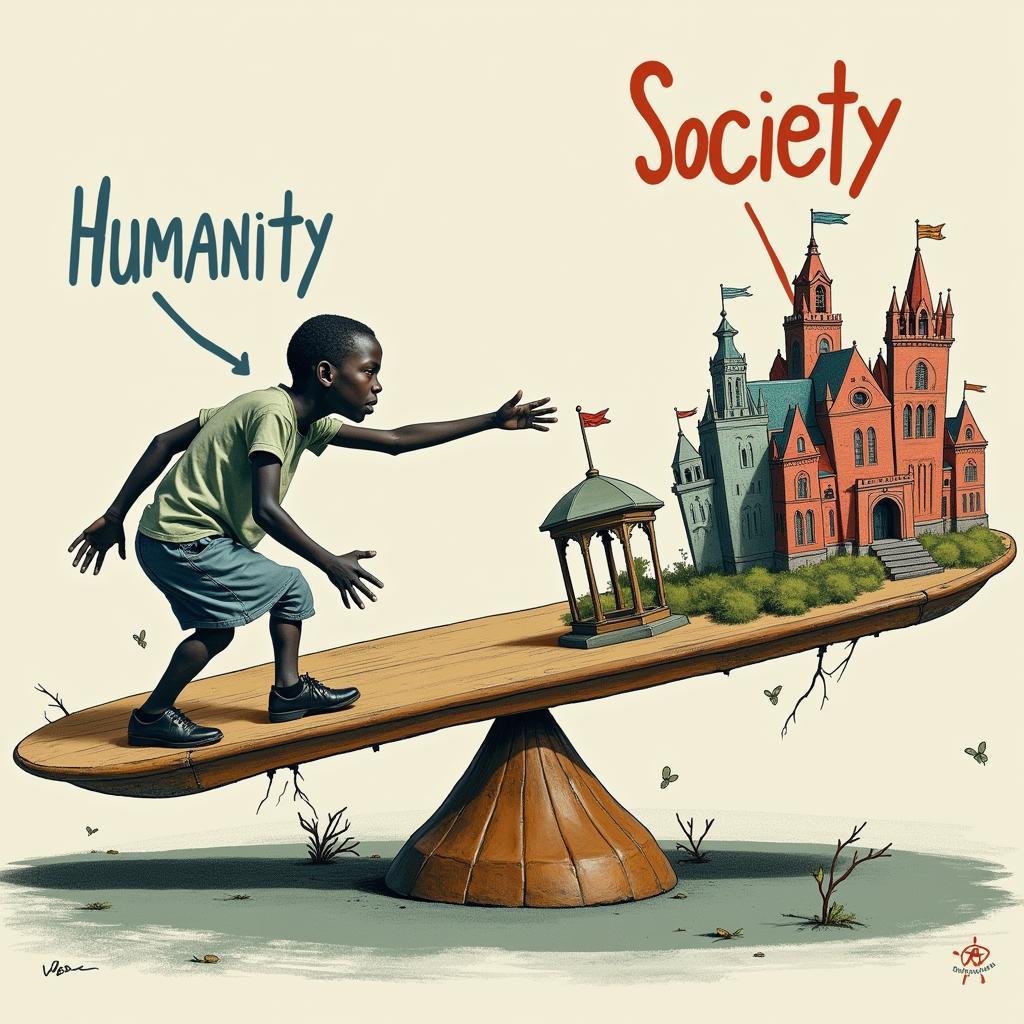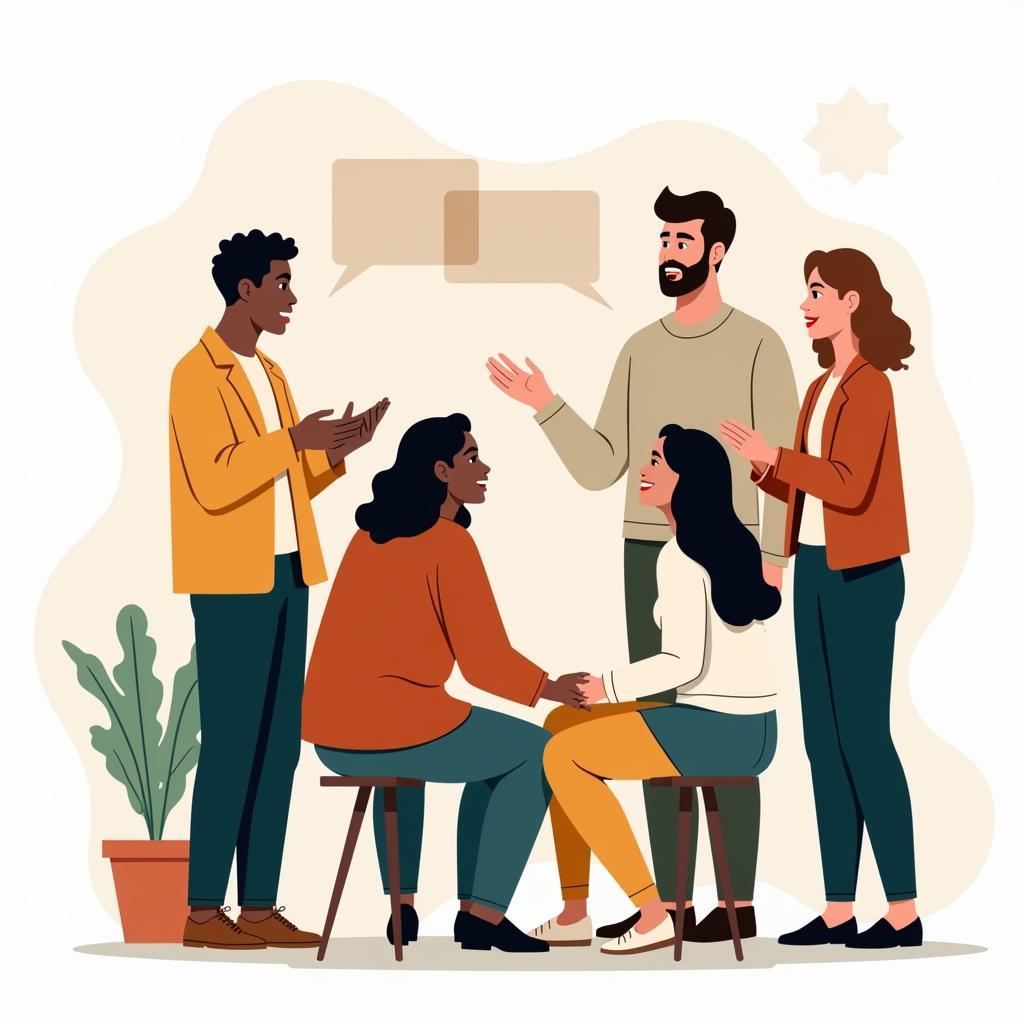Humanity vs. society is a fundamental dichotomy that shapes our understanding of the world. This complex interplay between individual desires and collective norms has been a source of both progress and conflict throughout history. How do we balance our innate human needs with the demands and expectations of the organized structures we live within?  Balancing Humanity and Societal Norms
Balancing Humanity and Societal Norms
Understanding the Core Dichotomy: Individual vs. Collective
The tension between humanity and society arises from the inherent differences between individual needs and collective goals. Humans, by nature, are driven by individual desires for survival, self-expression, and personal growth. Society, on the other hand, prioritizes order, stability, and the common good, often requiring individuals to conform to established norms and regulations. This can lead to clashes between individual freedom and societal constraints. For example, the desire for personal expression might clash with societal expectations of conformity. The pursuit of individual goals may conflict with the need for social cohesion.
man vs society in the most dangerous game
One crucial aspect of this dichotomy is the concept of social contracts. These unwritten agreements between individuals and society outline the rights and responsibilities of each party. Individuals agree to abide by certain rules and norms in exchange for the benefits of social order and security. However, the terms of these social contracts are often contested and renegotiated, leading to ongoing debates about the balance between individual liberties and collective needs.
How Societal Structures Influence Human Behavior
Societal structures, from political systems to economic models, play a powerful role in shaping human behavior. These structures define the boundaries within which individuals operate and influence their choices, values, and beliefs. Laws, customs, and traditions act as guiding forces, encouraging certain behaviors and discouraging others. Economic systems, for instance, can incentivize competition or cooperation, impacting individuals’ economic pursuits and social interactions.
The Impact of Social Norms and Expectations
Social norms and expectations, often unspoken and deeply ingrained, exert a significant influence on individual behavior. These unwritten rules dictate what is considered acceptable and unacceptable within a given society, shaping how individuals interact, dress, and express themselves. Conformity to these norms is often rewarded with social acceptance, while deviance can lead to ostracism and exclusion. This pressure to conform can stifle individuality and limit personal growth, creating internal conflicts for individuals who feel constrained by societal expectations.
Finding Harmony Between Humanity and Society
Is it possible to achieve a harmonious balance between humanity and society? The key lies in recognizing the inherent interconnectedness between the two. A thriving society depends on the well-being and contribution of its individual members. Similarly, individuals cannot flourish in isolation without the support and structure provided by society. Fostering a sense of community, promoting open dialogue, and embracing diversity are essential steps towards bridging this divide.
Embracing Diversity and Inclusivity
Recognizing and valuing the diversity of human experiences is crucial for creating a more inclusive and equitable society. Different cultures, perspectives, and backgrounds enrich the social fabric and contribute to a more vibrant and dynamic collective. Embracing inclusivity means creating spaces where everyone feels valued and respected, regardless of their differences. This involves challenging discriminatory practices and promoting equal opportunities for all members of society.
The Role of Dialogue and Understanding
Open and honest dialogue is essential for fostering understanding and bridging the gap between humanity and society. Creating platforms for individuals to share their experiences, perspectives, and concerns can help build empathy and promote constructive solutions to social challenges. Active listening, respectful communication, and a willingness to engage with differing viewpoints are key components of effective dialogue.
 The Importance of Dialogue and Understanding in Bridging the Gap Between Humanity and Society
The Importance of Dialogue and Understanding in Bridging the Gap Between Humanity and Society
Conclusion: Building a More Just and Equitable Future
The interplay of humanity vs. society presents ongoing challenges and opportunities for growth. By fostering a culture of understanding, empathy, and inclusivity, we can create a future where individual needs and collective goals are aligned, leading to a more just and equitable world for all. The continued negotiation of this dynamic relationship is crucial for the advancement of both humanity and society.
FAQ
- What is the core difference between humanity and society?
- How do societal structures influence human behavior?
- Why is embracing diversity important for social harmony?
- What is the role of dialogue in bridging the gap between individual and collective needs?
- How can we build a more just and equitable future?
- What are some examples of conflicts between individual freedom and societal expectations?
- How can we balance individual needs with the common good?
For further support, please contact us at Phone: 02043854663, Email: [email protected] or visit our office at Zone 34, Bac Giang, 260000, Vietnam. Our customer service team is available 24/7.